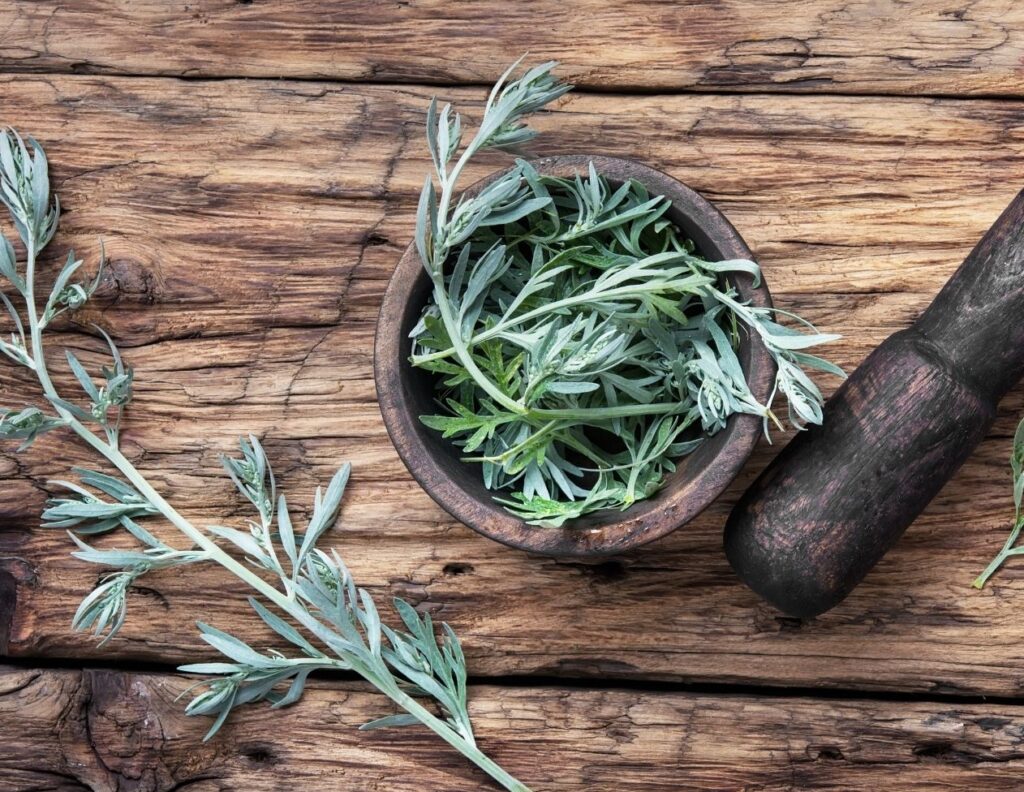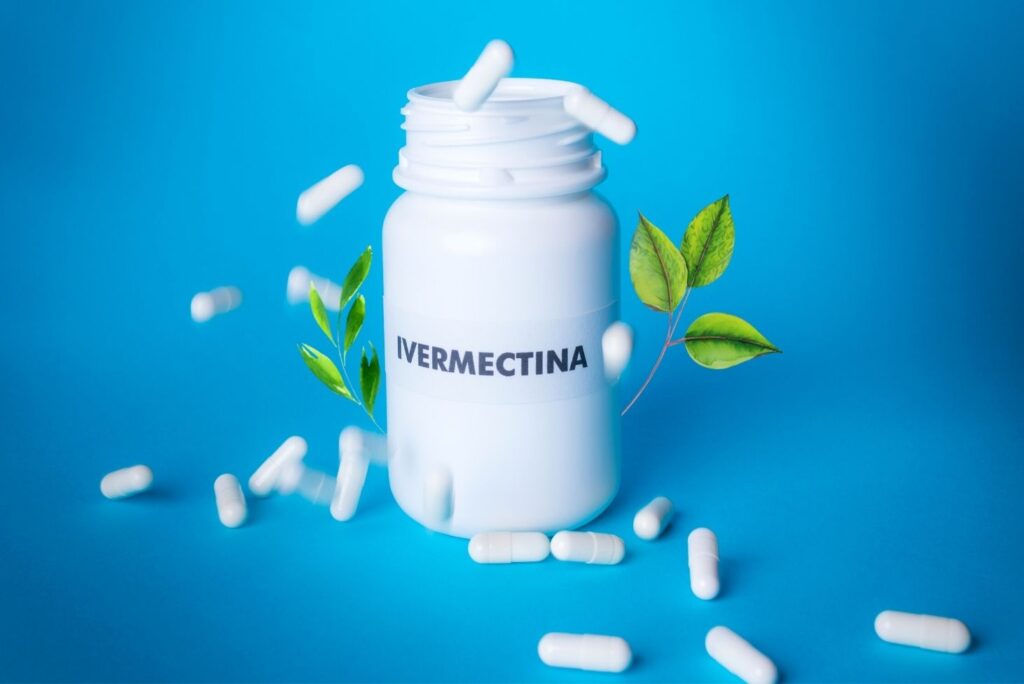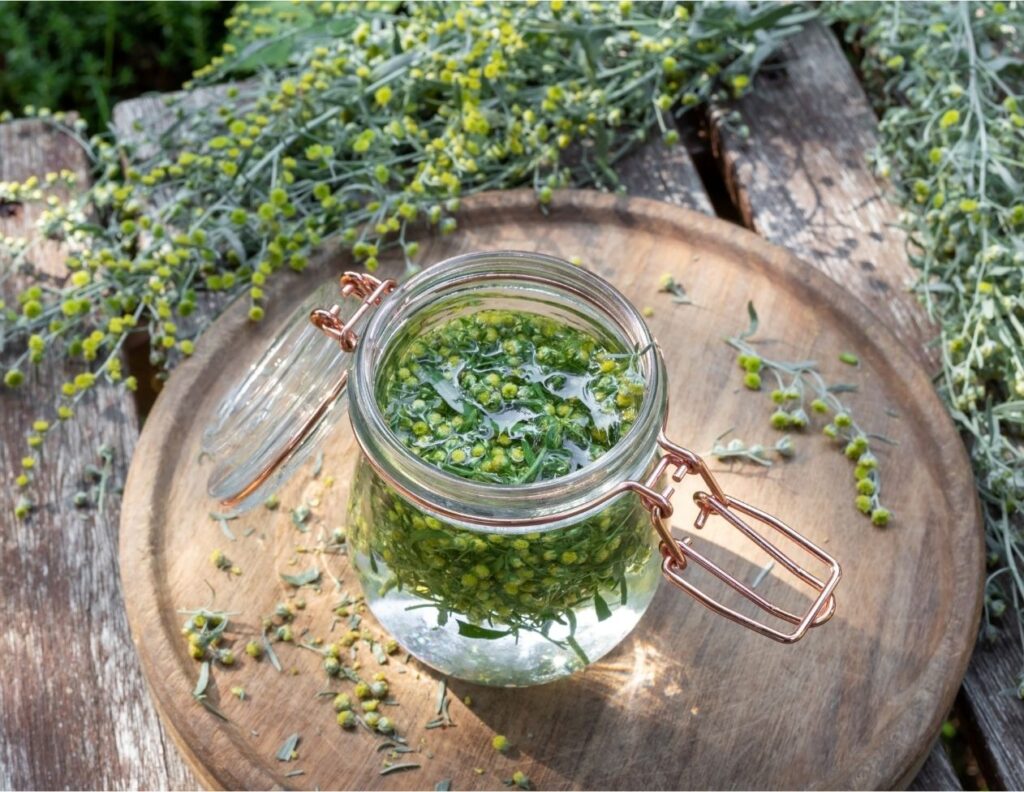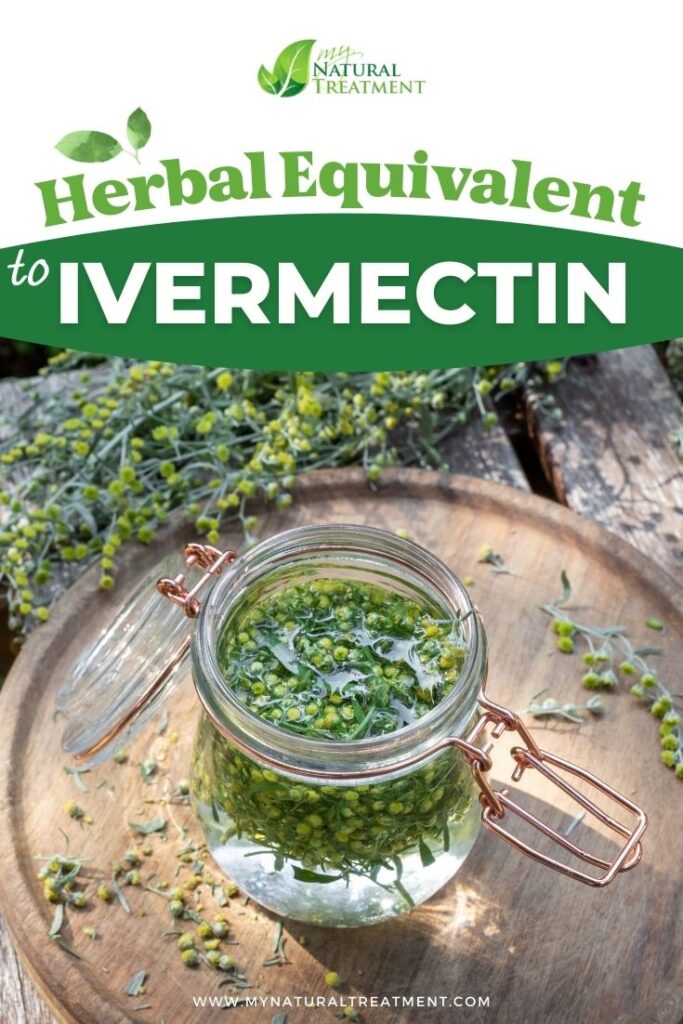Looking for a herbal equivalent to ivermectin for humans? Continue reading this article and discover the ivermectin herbal equivalent for humans.
Ivermectin is a powerful antiparasitic drug, listed in WHO’s essential medicines as an intestinal anthelmintic, antifilarial, and medicine for ectoparasitic infections. In other words, ivermectin is used in fighting intestinal roundworms, the malaria parasite, and infections caused by skin parasites, namely lice, fleas, bedbugs, mites, ticks, etc. Before we get to the herbal substitute for ivermectin, let’s see how ivermectin was discovered and how it works.

In This Article You Will Find:
How Ivermectin Was Discovered
Ivermectin was discovered by a Japanese researcher Satoshi Ōmura, who isolated new strains of Streptomyces from soil samples and successfully cultured them in the laboratory. Streptomyces is a type of bacteria that lives in the soil, known for its antibacterial properties. Streptomyces bacteria was first isolated in 1943 by Albert Schatz who is the inventor of the antibiotic Streptomycin.
William C. Campbell, a US expert in parasite biology received Ōmura’s Streptomyces samples and discovered that a component from one of the cultures was remarkably efficient against parasites in animals. He named it Avermectin. After improving the formula to use it in humans, Ivermectin was created, a revolutionary medicine for parasitic infections, winning the two researchers the Nobel prize in medicine in 2015.

The Herbal Equivalent to Ivermectin
Coincidentally or not, the 2015 Nobel Prize in medicine was also shared by Chinese researcher Youyou Tu, who isolated Artemisinin from the Artemisia annua plant, also known as sweet wormwood. His aim was to develop a powerful antimalarial medicine that rapidly kills the Malaria parasites at an early stage of their development. These three researchers have transformed the treatment of parasitic diseases ever since.
What is even more interesting is that Artemisia plants have been traditionally used against intestinal parasites, due to the fact that they have powerful antiparasitic and antibacterial properties, similar to Streptomycin and Ivermectin from Streptomyces bacteria. Even more curiously, Streptomycin is included in WHO’s essential medicines list as an antituberculosis medicine. Tuberculosis is caused by bacteria affecting the lungs. Artemisia is also one of the most powerful natural antiparasitics as well as an antibacterial.
Hence, the herbal equivalent to Ivermectin is the Artemisia family plant, amongst which Artemisia annua, Artemisia absinthium, and Artemisia vulgaris are the most popular.
In addition to artemisinin, Wormwood also contains powerful terpenes, namely thujone, phellandrene, pinene, camphene, cadinene, nerol, and chamazulene. It also contains bitter glycoside absinthe, absinthe acid, anabsintin, astabsine, artametin, succinic acid, tannins, resins, starch, potassium salts, nitrates, and other salts. Wormwood is deworming, anthelmintic, antiparasitic, antibacterial, antifungal, and antiviral.

Why Is Wormwood The Herbal Equivalent to Ivermectin
Wormwood (Artemisia absinthium) has been known since antiquity, since the time of the ancient Egyptians. According to Pliny the Elder (1st century AD), the priests of the goddess Isis wore wormwood branches at ceremonies, secretly naming this plant “the heart of the eagle“. Dioscorides (1st century AD) named wormwood somi, but it was already known as saam in the famous Ebers Papyrus more than 3,500 years ago (1600 BC).
In Thrace, wormwood was prepared in the form of a medicinal wine and was considered very healthy. Over time, wormwood has also received the recognition of doctors, its many beneficial properties being recorded in specialized treatises. In King’s American Dispensatory (1898), Harvey Wickes Felter said the following:
Wormwood “has been used successfully to expel intestinal parasites […] is a tonic stimulant, improves appetite, is useful in atonic conditions of the gastrointestinal tract, such as atonic dyspepsia […].”
Wormwood is the natural equivalent to Ivermectin, as artemisinin, naturally extracted from wormwood is the natural substitute for Ivermectin. And the reason is that they both have similar biological actions.
| Ivermectin | Wormwood | |
| Antiparasitic | yes ✅ | yes ✅ |
| Antibacterial | yes ✅ | yes ✅ |
| Antiviral | yes ✅ | yes ✅ |
| Antimalarial | yes ✅ | yes ✅ |
| Anticancer | yes ✅ | yes ✅ |
How to Use Wormwood as Herbal Equivalent to Ivermectin
To make most of its antiparasitic properties, this natural substitute for Ivermectin can be best used as a tincture. Wormwood tincture is found in most herbal drug stores or online and can be used as prescribed on the package. If you have fresh or dried wormwood (Artemisia absinthium) herb at home, you can make this herbal substitute for Ivermectin at home, by preparing your own wormwood tincture. Here is the recipe.
How to Make Wormwood Tincture At Home
To make the Ivermectin natural alternative for humans, you need the following ingredients:
- 100 g finely chopped wormwood
- 500 ml (17 oz) of double distilled alcohol (40 or 50% alcohol) such as rakija or vodka
Soak the chopped wormwood leaves in the alcohol in a sealed jar. Keep the jar in a dark place for the next 3 weeks, to macerate. After it is ready, strain and pour the wormwood tincture into amber bottles with a dropper. It is used against intestinal parasites and as a remedy for low acid gastritis, can aid in detox and weight loss.

How to Use
In the morning, on an empty stomach, dissolve 10-15 drops (depending on body weight) in 50-75 ml (1-2 oz) of water and drink it. Do not exceed 30-40 days of administration. For cold or flu symptoms, a lower dose is recommended (5-10 drops) in 75 ml (2 oz) of water 2-3 times a day and another dose before sleep (40 drops maximum/day.)
Safety
This herbal equivalent to Ivermectin is very potent and needs to be used with care. Wormwood products are not recommended during, pregnancy and breastfeeding, in hyperacid gastritis, gastric and duodenal ulcer, or epilepsy. In higher doses, wormwood products can have adverse events. Please use at the recommendation of a physician or naturopath.
Bottomline
This herbal equivalent to Ivermectin is one of the oldest antiparasitic remedies in all of Europe and other parts of the world. Wormwood, as its name states, is especially for killing intestinal parasites and other parasites that lower immunity and can lead to inflammations in the body. This natural equivalent to Ivermectin can have the same antiparasitic, antibacterial and antiviral properties as Ivermectin. If you enjoyed this article, read also how to make natural Ivermectin at home with wormwood tincture.
Share on Pinterest ❤️


4 comments
Great article
Thank you, Rozanne! Much health.
This is all so interesting, love it ????
Thank you so much! I hope you will find the information that you need here. Much health!